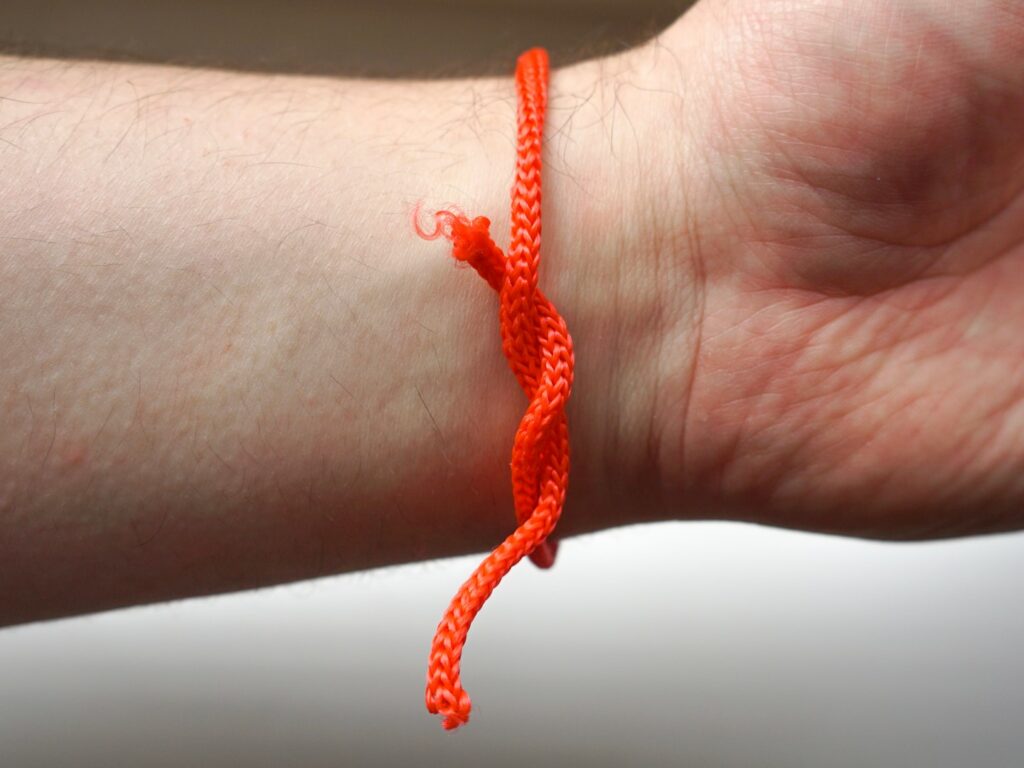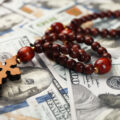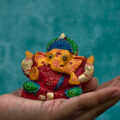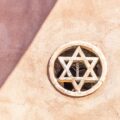Kabbalah: How Jewish mysticism became a celebrity craze
Kabbalah: How Jewish mysticism became a celebrity craze
Kabbalah, a type of Jewish mysticism, became a celebrity craze in the 2000s. But how did traditional kabbalists feel about this rebranding?
Kabbalah is a school of thought in Jewish mysticism that deals with the essence of God.[1] The tradition originated in 12th-century medieval Spain and southern France and was originally practised as an oral tradition.[2] Through the centuries, kabbalah has developed from the secretive practice of a select few to securing its position as a well-established branch of the Jewish tradition.[3]
In fact, the modern-day manifestation[4] of kabbalah is an example of one of the many New Age movements[5] that have grown in popularity in the past 40 years. This article will explore how and why kabbalah developed to become a celebrity craze in the 2000s and how this fascination with the movement was viewed by some members of world Jewry.
Understanding kabbalah
While different variations of kabbalah have developed over the centuries, at its core, kabbalah is a set of esoteric teachings that seek to explain the relationship between an eternal God and the finite universe.[6] Kabbalists believe that through knowledge of the “inner mysterious process, the greatest intimacy with God can be attained.”[7] While Jewish law is focused on what God wants from humans, kabbalah tries to penetrate deeper into God’s essence.[8]
The most famous work of kabbalah was the Zohar developed by rabbi Moses De León in 13th-century Spain. The Zohar is a mystical commentary on the Torah[9] and contains discussion of the nature of God, souls, sin, redemption and good and evil.[10] Despite some initial scepticism, the Zohar quickly gained popularity among Jews and even representatives of non-mystic Judaism began to regard it as a sacred book.[11]
From selected few to celebrity following
However, it was the work of one man that turned the school of thought into one of the most popular New Age movements amongst non-Jews. Rabbi Philip Berg, rabbi and creator of the worldwide Kabbalah Centre (henceforth referred to as the Centre) organisation, created the Centre in 1969 in New York and set about remarketing kabbalah with new ideas. He was known for “drawing comparisons between biblical stories and the struggles of modern life,”[12] which appealed to individuals looking for ways to understand their own difficulties. Rabbi Berg ran meditation classes and launched a kabbalah 101 self-study class which did not require people to learn Hebrew in order to practice the tradition.[13]
Furthermore, Rabbi Berg reflected on the impact that horrific world events, such as 9/11, had on individuals. Such people felt called to look for deeper truths with a renewed openness to mysticism which originally had been seen as inaccessible.[14] Rabbi Berg’s form of kabbalah was presented to a secular demographic as a way to uncover the complexities of the world order and develop personal improvement and spiritual happiness.
In the 2000s, celebrities such as Ashton Kutcher, Demi Moore, Lindsay Lohan, Monica Lewinsky, Britney Spears, Mick Jagger, and most famously, Madonna were associated with the movement. More recently, singer Ariana Grande explained she began following the movement after her brother was “rejected by the Catholic church” for being gay.[15] Followers of kabbalah can be identified by a red string bracelet that is worn around the left wrist to ward off any evil that could be caused by the evil eye.[16]
“Not a fashion statement”[17]
Even though Rabbi Berg’s repackaging of kabbalah made the tradition popular amongst the Western secular demographic, this new approach to Jewish mysticism received backlash from some within and outside of the Jewish community. Elliot Wolfson, Professor of Religious Studies at the University of California, says that what is taught at the Centre is “far from the traditional kabbalah … the imparting of secrets to those who have no background, is foreign to the predominant spirit” of kabbalah.[18]
Moreover, some traditional kabbalists argue that kabbalah separated from Torah study, which was promoted by Rabbi Berg, is not kabbalah. Instead, kabbalah should be a lens through which to view and understand the Torah.[19] Others find Rabbi Berg’s disneyfication of kabbalah into a “hollow fashion statement” to be highly offensive.[20] Arthur Green, a professor of Jewish mysticism at Hebrew College in the USA, says that the Centre “commercialises people’s psychological weaknesses, this [the red string] is the most trivial level of kabbalah.”[21]
In hot water
Beyond concerns raised over the authenticity of Rabbi Berg’s kabbalism, the Centre has not been immune from controversy. The Cult Education Institute has claimed that the Centre is “a cult that exploits people financially and psychologically, including threats of violence, misuse of funds … fraud and tax evasion.”[22] For example, in 2005, an undercover reporter with cancer visited the London Centre to see whether he could be ‘healed’ through kabbalah. He was charged £860 for a copy of the Zohar and given a few bottles of water that would supposedly cure his illness.[23]
Moreover, financial scandals have also damaged the reputation of the Centre. In 2011, Madonna and Rabbi Berg’s son Michael raised £13.6 million through their foundation to build a girls’ school in Malawi. However, the project ended after £2.2 million was instead spent on the LA Centre which led Madonna to remove Michael Berg from the board of Directors and distance herself from the Centre.[24]
Future of kabbalah
Following a series of scandals and the death of Rabbi Berg in 2013, questions were raised over whether the Centre and its modern-day interpretation of kabbalah would fall out of fashion. While the movement is not as prominent in the public eye as it was back in the 2000s, Kabbalah still attracts new adherents. The London Centre has grown exceptionally since it opened in 2002 with waiting lists for many classes.
Marcus Weston, former investment banker turned kabbalist teacher at the London Centre, attributes the growth in interest to “a void that religion can’t fill, but is still needed in society. That void can be filled with something universally spiritual.”[25] So long as this remains the case, it seems likely that the Centre’s brand of kabbalah will remain one of the most popular, modern spiritual movements.
Want to learn more about similar topics? Go to the EARS Dashboard.
Sources
[1] What is Kabbalah? | Reform Judaism
[2] What is Kabbalah? | Reform Judaism
[3]Pop Kabbalah: When Secret Jewish Mysticism Goes Mainstream | Unpacked
[4] In the modern day, Kabbalah gained popularity through Rabbi Philip Burg’s development of the Kabbalah Centre in 1969.
[5] What is the New Age Movement? – ReviseSociology
[6] Kabbalah and Mysticism 101 | My Jewish Learning
[7] What is Kabbalah? | Reform Judaism
[9] The Torah is the first five books of the Hebrew Bible (Old Testament).
[12] Philip Berg dead: Farewell to the rabbi who made Kabbalah the religion of stars | The Independent
[13] Kabbalah, the religion beloved by celebrities in the noughties
[14] Pop Kabbalah: When Secret Jewish Mysticism Goes Mainstream | Unpacked
[15] Kabbalah, the religion beloved by celebrities in the noughties
[16] Why do celebrities wear red string bracelets?
[17] Kabbalah not a celebrity fashion statement, Jews say – Deseret News
[18] Why Celebrities Stopped Following Kabbalah
[19] Pop Kabbalah: When Secret Jewish Mysticism Goes Mainstream | Unpacked
[20] Kabbalah not a celebrity fashion statement, Jews say – Deseret News
[21] Kabbalah not a celebrity fashion statement, Jews say – Deseret News
[22] Preaching to the converted: how Kabbalah keeps on growing | Religion | The Guardian
[23] Why Celebrities Stopped Following Kabbalah
[24] Madonna axes Kabbalah chief from Malawi… and then calls in PR ‘masters of disasters’
[25] Preaching to the converted: how Kabbalah keeps on growing | Religion | The Guardian






